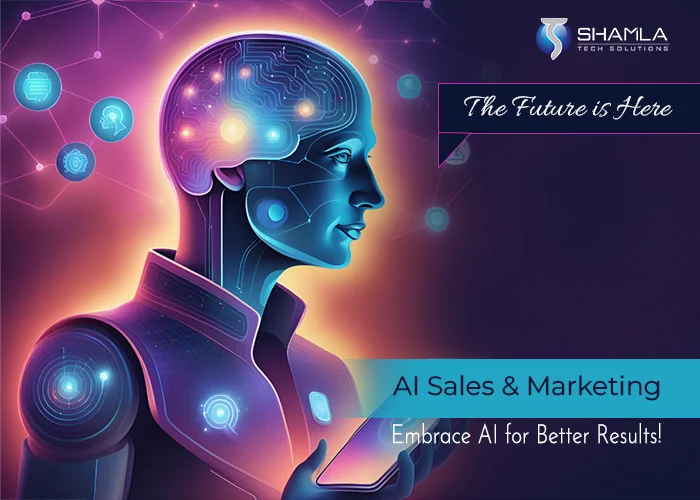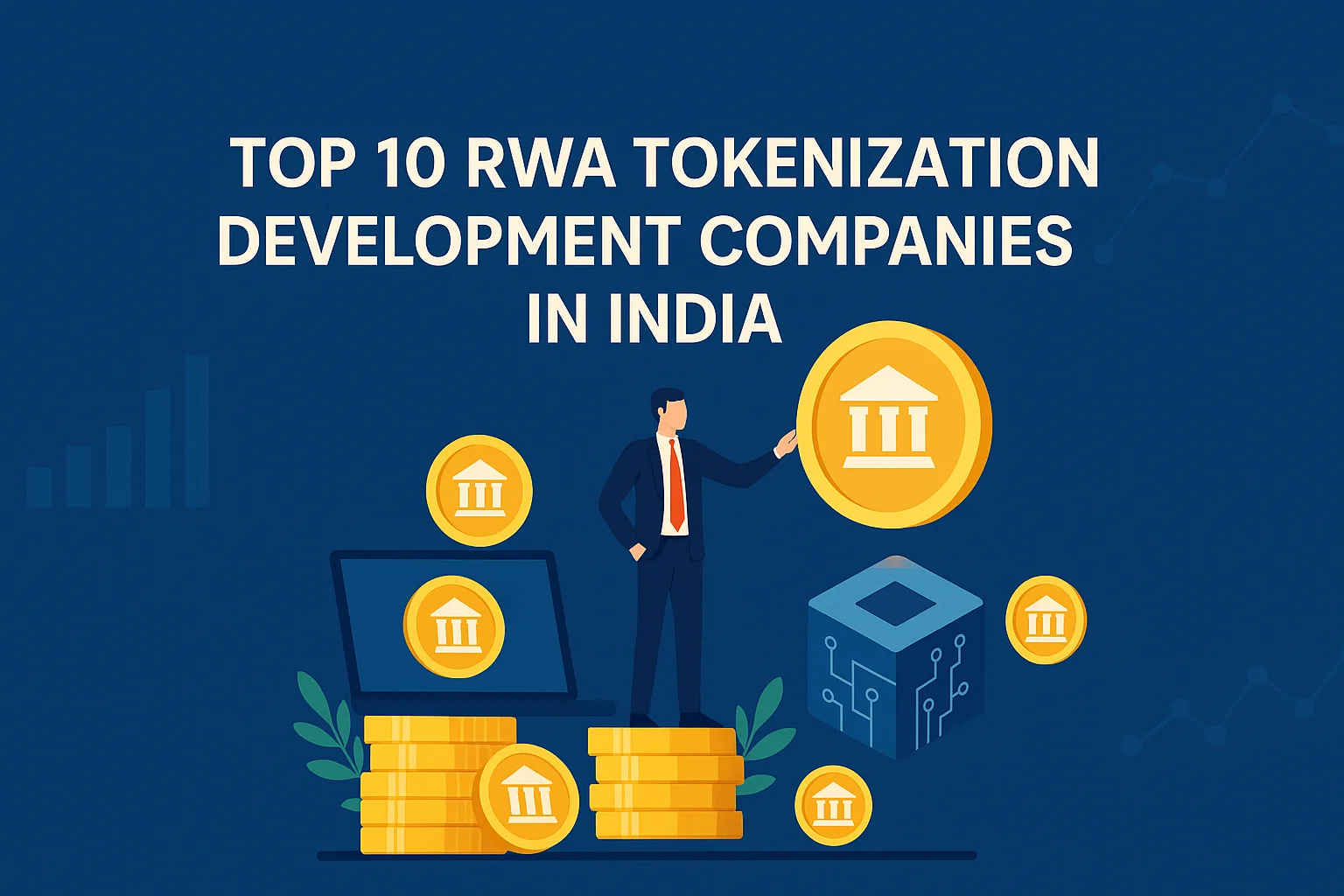In the dynamic world of business, artificial intelligence (AI) is revolutionizing marketing and sales. AI for marketing leverages advanced technologies to analyze vast amounts of data, enabling businesses to understand consumer behavior and preferences better. This understanding allows for more personalized and effective marketing campaigns, tailored to individual customer needs.
AI marketing tools and platforms provide businesses with powerful capabilities to automate and optimize various aspects of their marketing strategies. From predictive analytics to customer segmentation, AI marketing solutions offer invaluable insights that drive decision-making processes. These AI marketing software solutions can identify patterns and trends that might be missed by human analysis, ensuring that marketing efforts are both efficient and impactful.
In sales, AI enhances lead generation, customer relationship management, and sales forecasting. AI for sales and marketing helps businesses streamline their sales processes, identify high-potential leads, and predict future sales trends with greater accuracy. By integrating AI marketing platforms, companies can automate repetitive tasks, freeing up time for sales teams to focus on building meaningful customer relationships.
Overall, the integration of artificial intelligence in sales and marketing offers businesses a competitive edge, enabling them to deliver personalized experiences, optimize campaigns, and drive growth in an increasingly digital marketplace.
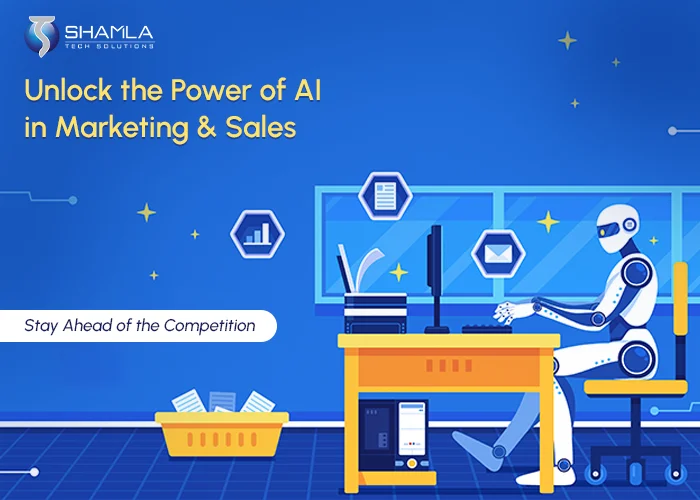
Personalized Customer Experiences
AI for marketing is transforming how businesses tailor their campaigns to individual preferences, creating highly personalized customer experiences. By analyzing vast amounts of data, AI marketing tools can identify specific customer behaviors, preferences, and purchasing patterns. This allows businesses to craft targeted marketing messages that resonate on a personal level, enhancing engagement and loyalty.
Artificial intelligence in sales and marketing uses sophisticated algorithms to segment audiences based on their unique characteristics. AI marketing platforms can then deliver customized content, offers, and recommendations to each segment, ensuring that customers receive the most relevant information at the right time. This level of personalization not only boosts customer satisfaction but also drives higher conversion rates.
Examples of personalized customer interactions include AI-powered chatbots that provide instant, tailored responses to customer inquiries and dynamic email campaigns that adapt content based on recipient behaviour. AI marketing software can also personalize website experiences by displaying product recommendations based on past browsing history or purchase behaviour.
Overall, AI marketing solutions enable businesses to move beyond generic campaigns, creating a more meaningful and engaging customer journey. By leveraging AI for sales and marketing, companies can build stronger relationships with their customers, ultimately driving growth and success.
Predictive Analytics for Better Decision-Making
Predictive analytics, powered by AI for marketing, is revolutionizing how businesses forecast market trends and understand consumer behaviour. By leveraging advanced algorithms, AI marketing tools can analyze historical data and identify patterns that predict future outcomes. This allows businesses to make informed decisions, optimize strategies, and stay ahead of market trends.
AI marketing solutions enable companies to anticipate customer needs and preferences, enhancing their ability to tailor marketing campaigns and product offerings. For instance, AI marketing software can predict which products are likely to be popular in upcoming seasons or which customer segments are most likely to respond to specific promotions. This foresight enables more effective allocation of marketing resources and improves overall campaign efficiency.
In the realm of sales, artificial intelligence in sales and marketing transforms how sales strategies are developed and executed. AI marketing platforms can forecast sales trends, helping businesses set realistic targets and identify high-potential leads. By predicting which prospects are most likely to convert, sales teams can prioritize their efforts, resulting in higher conversion rates and increased revenue.
AI-Powered Customer Insights
AI-powered customer insights are transforming the landscape of modern marketing. By using AI for marketing, businesses can gather and analyze vast amounts of customer data with unprecedented speed and accuracy. AI marketing tools sift through customer interactions, purchase histories, and social media activity to identify patterns and trends that would be impossible to detect manually.
Artificial intelligence in sales and marketing enables companies to turn these insights into actionable marketing tactics. For example, AI marketing software can segment customers based on their behavior, preferences, and demographics, allowing for highly targeted and personalized campaigns. This precise targeting not only enhances customer engagement but also maximizes the return on marketing investments.
AI marketing solutions provide businesses with the ability to predict future customer behavior, enabling proactive strategy adjustments. For instance, AI marketing platforms can identify when a customer is likely to churn and trigger retention campaigns to prevent it. Similarly, they can recommend optimal times to launch new products or promotional offers based on predictive analytics.
The integration of AI for sales and marketing leads to more informed decision-making and effective strategies. By leveraging AI marketing tools, businesses can gain deeper customer insights, personalize their marketing efforts, and drive better results in an increasingly competitive marketplace.
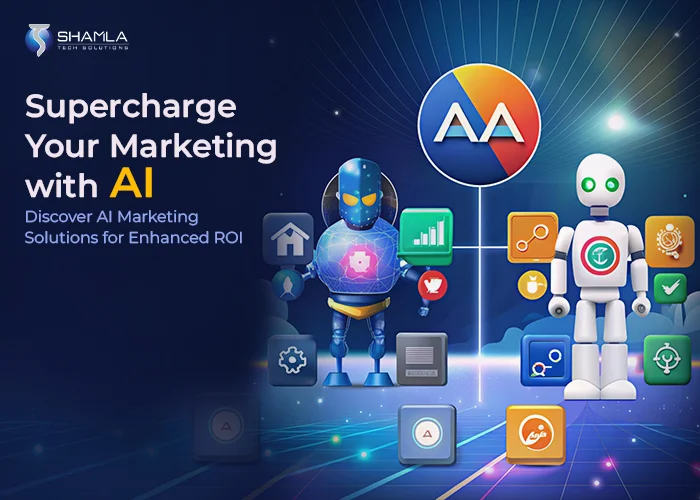
Chatbots and Virtual Assistants
AI-driven chatbots and virtual assistants are revolutionizing customer service and sales processes. By leveraging AI for marketing, businesses can deploy chatbots to handle customer inquiries instantly and efficiently. These AI marketing tools provide 24/7 support, ensuring that customers receive timely assistance without human intervention. Chatbots can answer frequently asked questions, guide users through website navigation, and even process orders, significantly enhancing the customer experience.
In the realm of sales, artificial intelligence in sales and marketing plays a crucial role. Virtual assistants can manage and streamline various sales processes, such as lead generation and follow-ups. They can identify potential leads through data analysis, send personalized messages, and schedule appointments, freeing up sales teams to focus on closing deals. This automation not only improves efficiency but also ensures that no lead is overlooked.
AI marketing platforms enable chatbots and virtual assistants to learn and adapt over time, continuously improving their interactions with customers. This adaptability enhances customer satisfaction and loyalty as the AI tools become more attuned to individual preferences and behaviors.
The benefits of incorporating AI marketing software, such as chatbots and virtual assistants, are manifold. They enhance customer service, streamline sales processes, and provide a seamless, personalized experience that meets the demands of today’s consumers. AI for sales and marketing thus becomes an indispensable asset for businesses aiming to thrive in a competitive market.
Automation of Marketing Tasks
Automation of marketing tasks through AI for marketing is transforming the efficiency and effectiveness of marketing operations. AI marketing tools streamline various marketing activities, freeing up time for marketers to focus on strategic planning and creative development. By utilizing artificial intelligence in sales and marketing, businesses can automate repetitive tasks, ensuring consistency and accuracy while reducing human error.
AI marketing platforms offer solutions to automate a wide range of tasks. For instance, email marketing campaigns can be personalized and scheduled based on customer behavior and preferences. Social media posts can be automated, ensuring timely and consistent engagement with audiences across multiple channels. Additionally, AI marketing software can manage and optimize pay-per-click (PPC) advertising campaigns by adjusting bids and targeting parameters in real-time based on performance data.
Other examples of automated tasks include customer segmentation, where AI tools analyze data to group customers into segments for targeted campaigns and lead scoring, where AI assesses the potential of leads to prioritize sales efforts. AI marketing solutions also facilitate content creation and curation, using algorithms to generate relevant and engaging content tailored to specific audience segments.
The automation of marketing tasks with AI for sales and marketing enhances productivity, accuracy, and scalability. By integrating AI marketing tools, businesses can achieve more with less effort, driving growth and improving their competitive edge in the market.
Enhancing Lead Generation and Nurturing
AI for marketing is revolutionizing lead generation and nurturing processes by providing advanced techniques to identify and engage potential customers. AI marketing tools analyze vast amounts of data to pinpoint high-quality leads based on behavior, demographics, and purchasing patterns. This precision enables businesses to focus their efforts on prospects with the highest potential, ensuring a more efficient use of resources.
Artificial intelligence in sales and marketing facilitates personalized nurturing strategies that cater to individual lead preferences and needs. AI marketing software can automate the delivery of tailored content, such as emails, offers, and recommendations, based on where the lead is in the sales funnel. This continuous engagement helps to build trust and maintain interest, ultimately leading to higher conversion rates.
AI marketing solutions also enhance lead scoring by evaluating leads in real-time and updating their scores based on new interactions and behaviors. This dynamic scoring system allows sales teams to prioritize leads more effectively, ensuring that the most promising prospects receive immediate attention.
By leveraging AI marketing platforms, businesses can implement data-driven strategies that significantly improve lead conversion rates. AI-driven insights enable marketers to optimize their campaigns, refine their targeting, and deliver personalized experiences that resonate with potential customers, ultimately driving growth and success in the competitive market.
Content Creation and Optimization
Leveraging AI to generate and optimize content is transforming the landscape of digital marketing. AI for marketing utilizes advanced algorithms to create high-quality content that resonates with target audiences. AI marketing tools can analyze trends, keywords, and consumer behaviour to generate relevant and engaging content tailored to specific demographics.
Artificial intelligence in sales and marketing enhances content creation by automating tasks such as drafting articles, creating social media posts, and generating video scripts. AI marketing software can produce content at scale while maintaining a consistent tone and style, ensuring that businesses can meet the growing demand for personalized content.
AI marketing platforms also optimize content by analyzing performance data and providing insights on how to improve engagement. These platforms can suggest the best times to publish, the most effective formats, and the ideal keywords to use. By continuously learning from interactions, AI tools refine content strategies to maximize impact.
Tools and technologies used for AI content creation include natural language processing (NLP) systems like GPT-4, which can generate human-like text, and AI-powered design tools that create visual content. These AI marketing solutions enable businesses to efficiently produce and optimize content, driving higher engagement and conversion rates.
Incorporating AI for sales and marketing into content strategies allows businesses to deliver compelling, data-driven content that attracts and retains customers, ultimately boosting their competitive edge in the market.
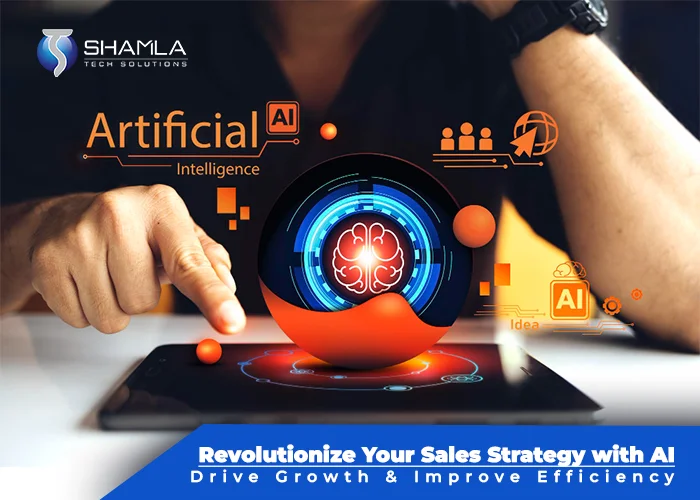
Measuring and Analyzing Marketing ROI
Using AI to track and measure the effectiveness of marketing campaigns is a game-changer for businesses seeking to maximize their return on investment (ROI). AI for marketing provides advanced tools and platforms that analyze vast amounts of data to offer precise insights into campaign performance. AI marketing tools can assess various metrics such as engagement rates, conversion rates, and customer acquisition costs, helping marketers understand the impact of their efforts.
Artificial intelligence in sales and marketing allows for real-time tracking and analysis, enabling businesses to make data-driven decisions promptly. AI marketing software can identify which campaigns are delivering the highest ROI and which ones need adjustments. This continuous monitoring ensures that marketing strategies remain effective and efficient.
Optimizing ROI with AI-driven insights involves leveraging predictive analytics and machine learning algorithms. AI marketing solutions can forecast future trends and customer behaviors, allowing businesses to allocate resources more strategically. For example, AI can predict which marketing channels are likely to yield the best results and recommend budget adjustments accordingly.
AI marketing platforms also help in identifying potential areas of improvement by analyzing customer feedback and behavior patterns. This feedback loop enables marketers to refine their strategies, create more targeted campaigns, and ultimately enhance overall performance.
Future Trends in AI Marketing and Sales
As AI continues to evolve, several emerging trends and innovations are shaping the future of AI for marketing and sales. One key trend is the increasing integration of AI with other technologies, such as big data analytics and machine learning, to enhance the capabilities of AI marketing tools and platforms. This integration allows for more accurate predictions and personalized experiences for customers.
Another trend is the rise of AI-powered customer service, with chatbots and virtual assistants becoming more sophisticated and capable of handling complex interactions. These AI-driven solutions enable businesses to provide round-the-clock support and improve customer satisfaction.
Additionally, AI is enabling more precise targeting and segmentation of audiences, allowing marketers to deliver highly tailored messages to specific customer segments. This level of personalization enhances engagement and drives conversions.
Looking ahead, businesses should prepare for the future of AI in business by investing in AI marketing tools and solutions that can adapt to changing trends and technologies. By staying ahead of the curve, businesses can leverage AI to drive growth, improve efficiency, and maintain a competitive edge in the market.
Conclusion
In conclusion, the integration of AI into marketing and sales is reshaping the way businesses engage with customers, optimize strategies, and drive growth. AI for marketing enables businesses to create personalized customer experiences, predict market trends, and automate repetitive tasks, leading to increased efficiency and effectiveness.
AI marketing tools and platforms offer a range of benefits, from streamlining operations to enhancing lead generation and nurturing. By leveraging AI-driven insights, businesses can make data-driven decisions that result in higher ROI and improved customer satisfaction.
As AI continues to evolve, future trends suggest even more exciting developments. Emerging technologies such as voice search optimization, AI-powered content generation, and hyper-personalization are set to revolutionize the marketing and sales landscape.
To prepare for the future of AI in business, companies should invest in AI marketing solutions that can adapt to changing trends and technologies. By embracing AI, businesses can stay ahead of the curve, drive innovation, and maintain a competitive edge in the market. AI is not just a tool for marketing and sales; it is a transformative force that is reshaping the future of business.

